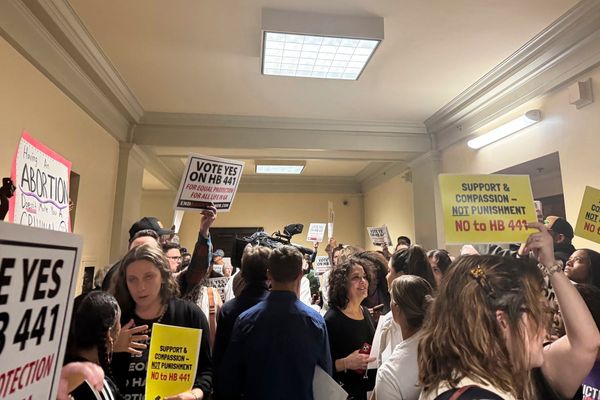
Luanda (AFP) - Angolans cast their ballots Wednesday in what was widely seen to be the most competitive vote in their country's democratic history, with incumbent President Joao Lourenco squaring up against charismatic opposition leader Adalberto Costa Junior.
The election has been overshadowed by Angola's many woes -- a struggling economy, inflation, poverty and drought, compounded by the death of a former strongman president.
The People's Movement for the Liberation of Angola (MPLA), which has ruled the oil-rich nation for nearly five decades, is facing its most serious challenge since the first multiparty vote in 1992.
Eight political parties are running, but the real contest lies between the MPLA and its long-standing rival and ex-rebel movement the National Union for the Total Independence of Angola (UNITA).
Opinion polls suggest that support for the MPLA -- which won 61 percent of the vote in 2017 elections -- will dwindle, while the UNITA -- which has entered an electoral pact with two other parties -- will make gains.
But UNITA's inroads might not be enough to unseat Lourenco, 68, who succeeded veteran leader Jose Eduardo dos Santos five years ago.
Dozens of voters lined up at polling stations in the early morning, but by midday they were just a trickle.
After casting his ballot at the capital's Lusiada University, Lourenco urged Angolans to come out and vote to ensure "it is democracy that wins".
Voting in the working-class Nova Vida district, his rival Costa Junior called for "full turnout and for all ballots to be counted."
'Closer than ever'
Costa Junior, 60, is popular among youth -- a significant and growing voting bloc -- and has pledged to "eradicate poverty" and create jobs.
Analyst Justin Pearce said the race looked "very competitive".
"The further we've gotten from the civil war, the less currency...the MPLA has had," said the history lecturer at South Africa's Stellenbosch University.
But "the opposition has become more organised and found some synergy with society.
"The outcome looks like it's going to be closer than ever before."
The MPLA traditionally wields a grip over the electoral process and state media in Angola, but the opposition is urging supporters not to be intimidated.
Opposition and civic groups have raised fears of voter tampering, and social media is rife with claims of dead people registered to vote.
The opposition has asked supporters to peacefully monitor the counting process and stage sit-ins outside polling places after voting closes.
In the working-class district of Cazenga, 57-year-old Miguel said he would accept the vote's outcome, whatever it was.
"We have to accept the results, it's the democratic game," he said, without giving his surname.
But Alberto Bernardo Muxibo, who described himself as a civil society activist, disagreed.
"We don't have a real democracy.The government oppresses the people," he said.
Poverty and graft
Lourenco, a Soviet-educated former general who had promised a new era for Angola when he was first elected, has trumpeted a list of achievements.
He is credited with making far-reaching reforms in one of southern Africa's economic powerhouses.
They include boosting financial transparency and efficiency in parastatal organisations, and promoting business-friendly policies to lure foreign investors.
Johannesburg-based analyst Marisa Lourenco said Lourenco's handling of the debt racked up by his predecessor had been "remarkable".
"The West would not mind an MPLA victory -- even with concerns of vote rigging," she said.
"Governments and companies abroad prefer stability over change".
But little has changed for most of Angola's 33 million people, for whom life is a daily grind.
Angola is Africa's second largest crude producer, but the oil bonanza also nurtured corruption and nepotism under dos Santos, who died in Spain last month.
The low-key, night-time repatriation of his remains in the final leg of campaigning has added a macabre touch to the election.
Dos Santos will be buried on Sunday, which would have been his 80th birthday.
Some 14.7 million people are registered to vote at 13,200 polling stations across the vast southern African nation.
Angolans living overseas are for the first time able to cast ballots from abroad.
Results are expected within a few days.In past elections, results have been contested, in a process that can take several weeks.







